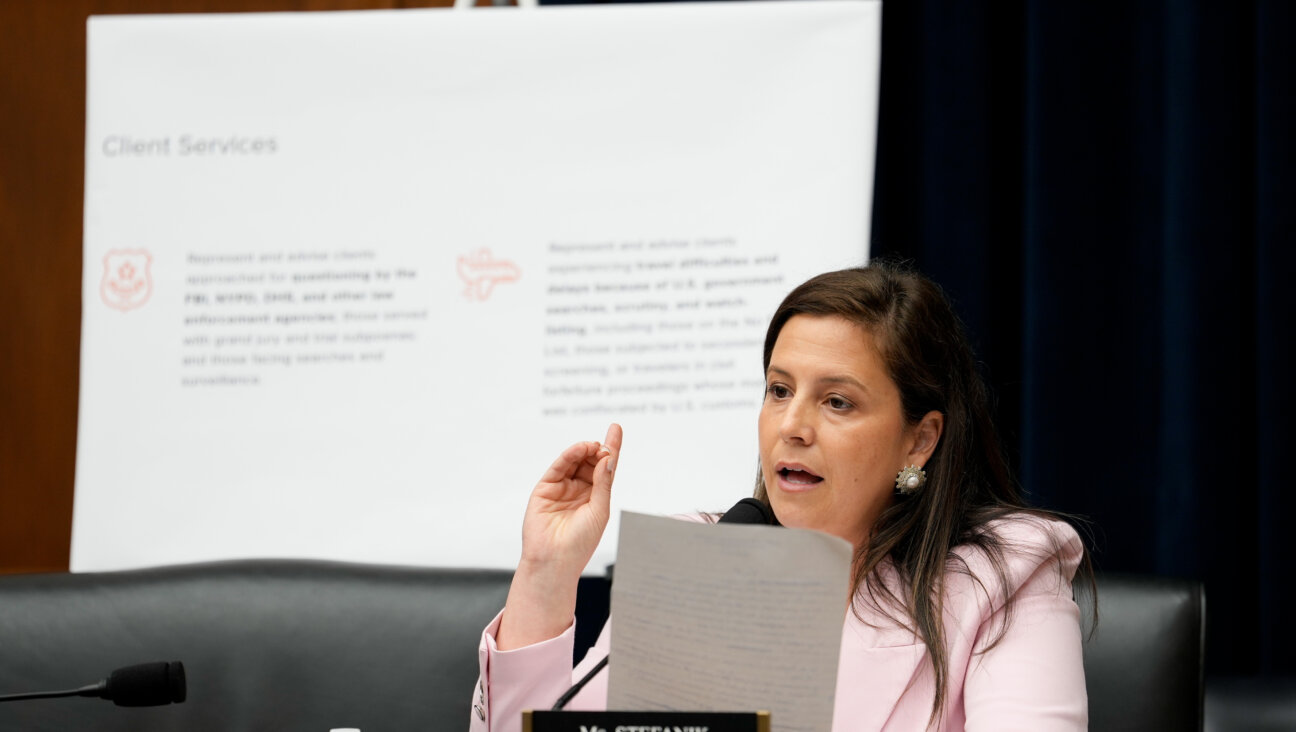Don’t blame haredi Jews for the spread of coronavirus. Blame their media and leadership.

An Orthodox Jewish boy walks by medical workers as they take in patients at a special coronavirus intake area at Maimonides Medical Center on April 06, 2020 in the Borough Park neighborhood of the Brooklyn borough of New York City. Hospitals in New York City, which has been especially hard hit by the coronavirus, are facing shortages of beds, ventilators and protective equipment for medical staff. New York City had more than 72,000 confirmed COVID-19 cases as of this afternoon, according to health officials. (Photo by Spencer Platt/Getty Images) Image by Getty Images
In New York and Israel, ultra-Orthodox communities have been among the hardest hit by the novel coronavirus pandemic.
Some community members point to a lack of access to mainstream media outlets to explain how this epidemic came to ravage the haredi community. Community members didn’t know the extent of the virus or the way it was affecting other countries, they claim, because they don’t have access to TV and the internet.
But the truth is the ultra-Orthodox community does have access to its own rabbinically-sanctioned media ecosystem: daily newspapers like the Jewish Press and Hamodia; Yiddish papers like the Yid and the Blatt; weekly magazines like Ami, Bina and Mishpacha; and English and Yiddish language hotlines and robocalls that take the place of radio and TV in these communities.
It is through these media that community members get their news. And their media simply failed to adequately inform them about coronavirus or exhort them to take precautions. Instead, while other communities had already begun implementing social distancing protocols, ultra-Orthodox leadership preached the opposite, like Rav Chaim Kanievsky, one of ultra-Orthodoxy’s greatest Rabbis, who advised yeshivas in Israel to remain open even after the government had ordered them shuttered to contain the virus’s spread. He was relying on poor information, apologists claim in his defense, noting that after infections had started rising in his community and he appreciated the gravity of the situation, he did have yeshivas closed.
As a public service during this pandemic, the Forward is providing free, unlimited access to all coronavirus articles. If you’d like to support our independent Jewish journalism, click here.
The Satmar Rabbi, Reb Aron Teitelbaum, likewise encouraged his constituents to go on with group prayer and keep their yeshivas opened when the government was already issuing social distancing protocols. It was not until he had a phone call with the White House urging him to shut down gatherings that the Satmar Rabbi belatedly did so.
It omitted the fact that the day after NYC announced that it was closing public schools, days after yeshiva day schools had closed on 3/16, R Teitelbaum promised to pursue every legal avenue to ensure that schools remain open, that “Torah & prayer protect us from death.” pic.twitter.com/5KWC7YKpmz
Avital Chizhik-Goldschmidt (@avitalrachel) April 6, 2020
By then, as he learned days later, Rabbi Teitelbaum had himself contracted the virus.
Some say it was an unfortunate coincidence of the Purim holiday with the early spread of the virus that allowed it to sweep so rapidly through their community. But this misfortune was foreseeable. By Purim time, other Jewish communities were cutting down their social interactions, cancelling or limiting in person Megillah services, and otherwise curtailing their religious practices, recognizing the dangers Purim customs would pose in the face of a deadly and highly contagious virus.
But the day before Purim, on March 9, Agudath Israel posted a Q & A that advised individuals to continue going to shul for minyan, attending synagogue Megilla readings, and carrying on with their Purim celebrations, unless they were actually ill. And on that same day, a large group of Rabbis and leaders gathered to discuss what they deemed a pressing issue for their community: the matter of preventing government enforcement of education standards in their yeshivas. Coronavirus, which had already begun to quietly spread throughout New York, was not their prime concern.
I joined an important meeting w/ Williamsburg Rabbanim to discuss the current state of our precious yeshiva system & its vital independence.
The meeting included leadership of @pearlsNY, Rabbi David Zwiebel – @AgudahNews, R’ David Niederman – @UnitedJewish & attorney Avi Schick. pic.twitter.com/ZuQvl2RUXV
Avi Greenstein (@Avi_Greenstein) March 9, 2020
How can you blame the lay people for going about their Purim festivities, attending shuls with large gatherings, traveling across the tristate area to join extended family for Purim meals, and sending their children to yeshiva in the days that followed even as institutions around them were already shutting down? They truly did not have access to better information. Information is so restricted in these communities that many members would not have had access to government guidelines had they wanted to follow them.
The blame lies with the leadership, who failed to sound the alarm.
Haredi leaders know how to get their message out clearly and widely for matters they deem important, and their constituents heed them. Loudspeakers attached to cars drive through the streets, Yiddish robocalls and text messages circulate and pamphlets are posted throughout the community to alert members to the community’s pressing concerns.
And yet, it wasn’t until the sirens started wailing through their streets that the ultra-Orthodox leadership took this epidemic more seriously and urged constituents to adhere to social distancing protocols. By then, it was too late.
The community is hurting, and some may feel that now is not the time to point out its faults. But instead of defending the leadership’s ineptitude, now is the time to hold them accountable.
Miriam Moster is a doctoral student in sociology at CUNY Graduate Center, a Mellon Humanities Public Fellow and a Wexner Graduate Fellow.




















